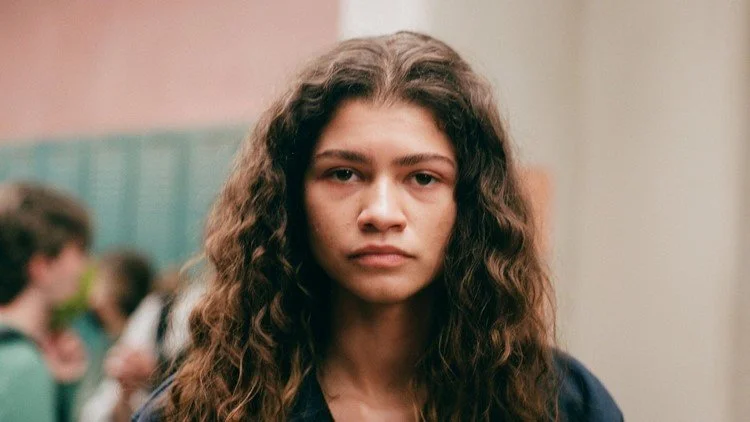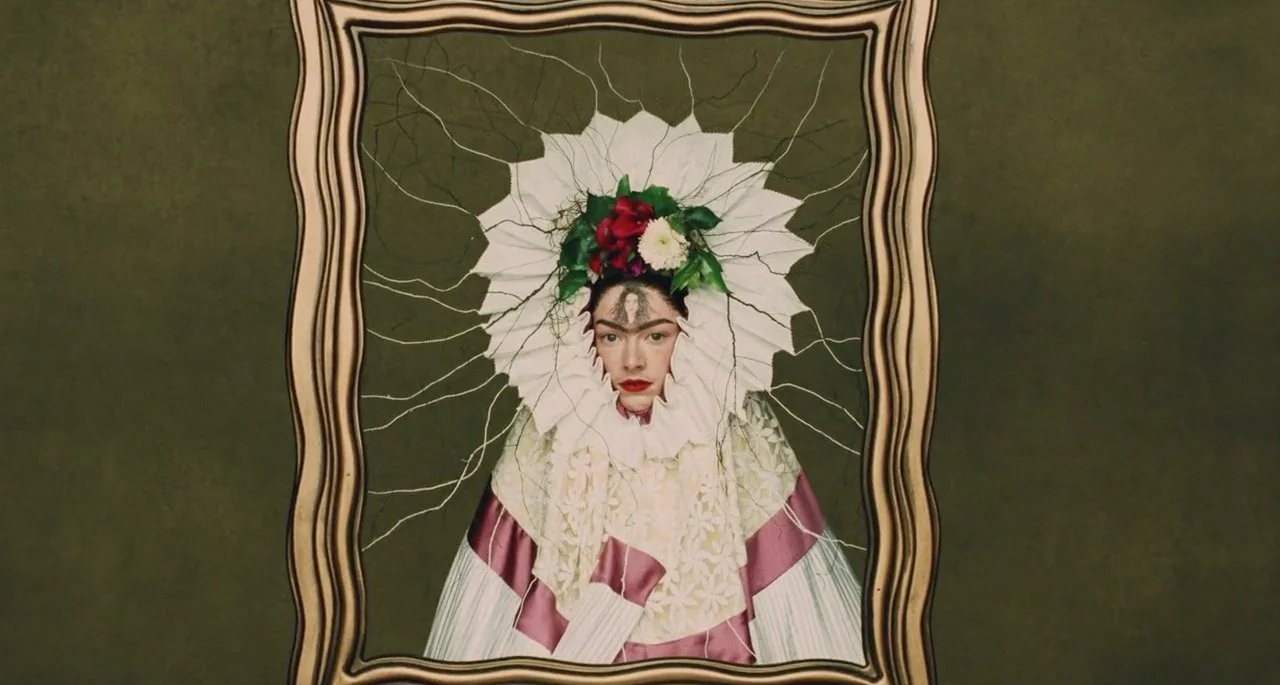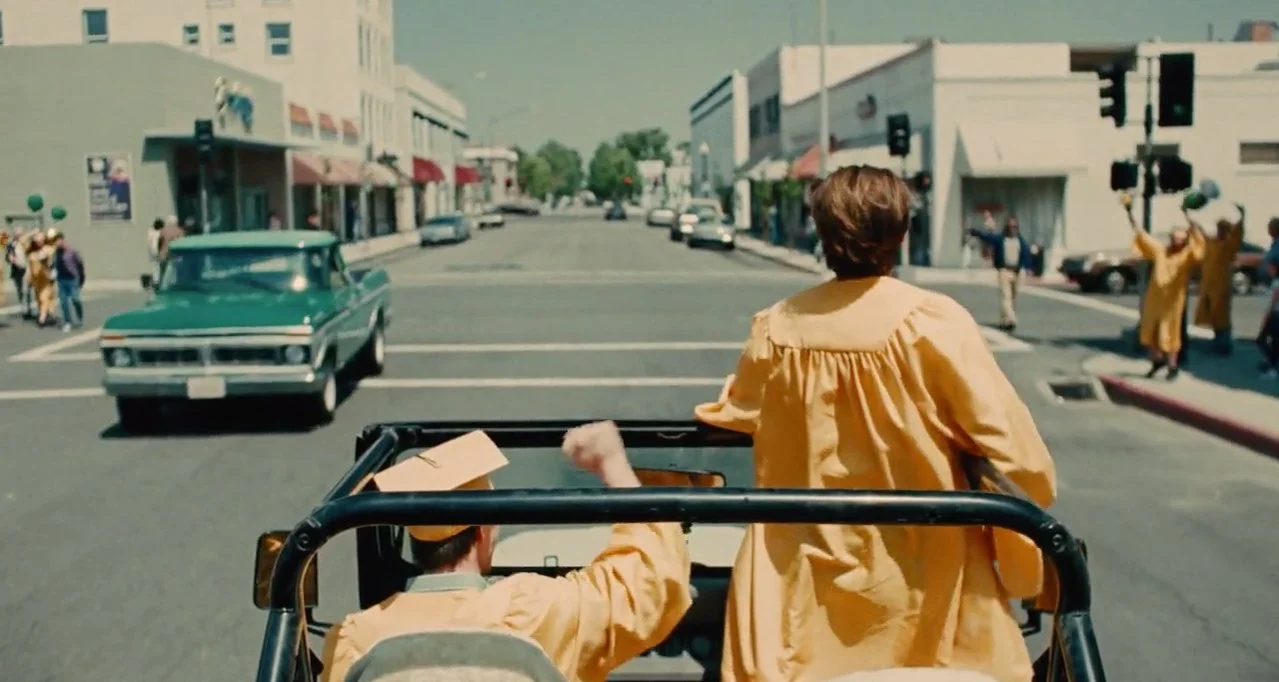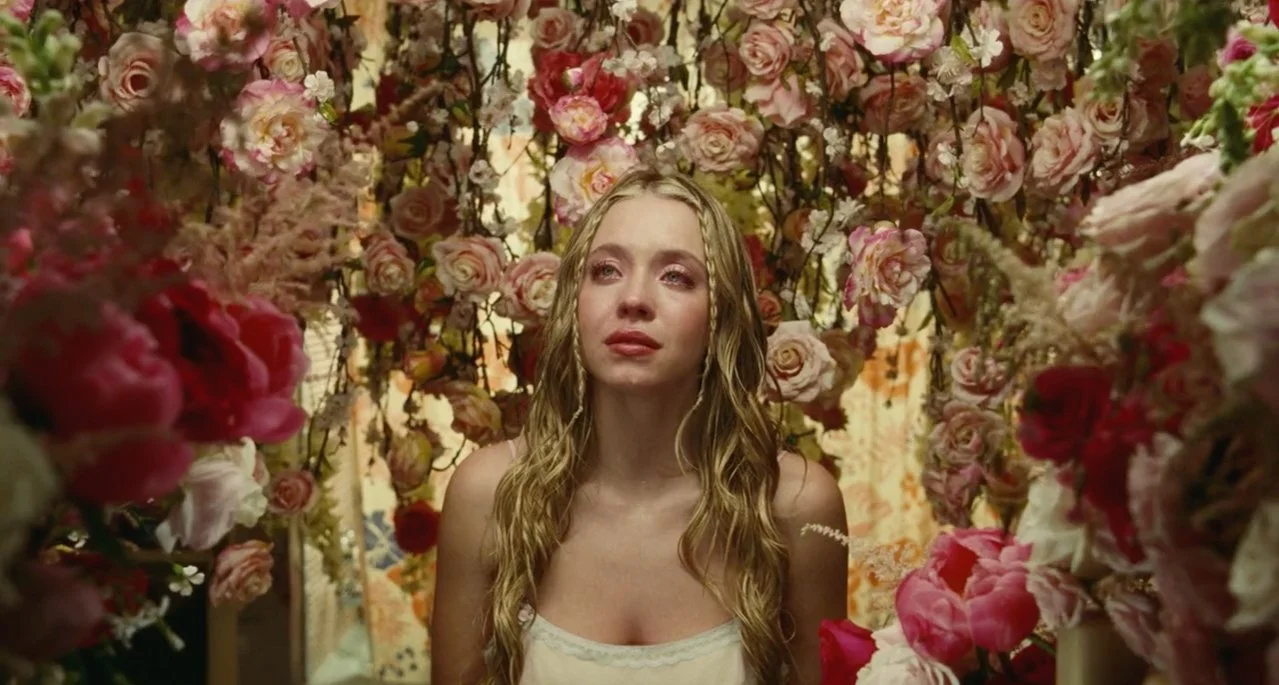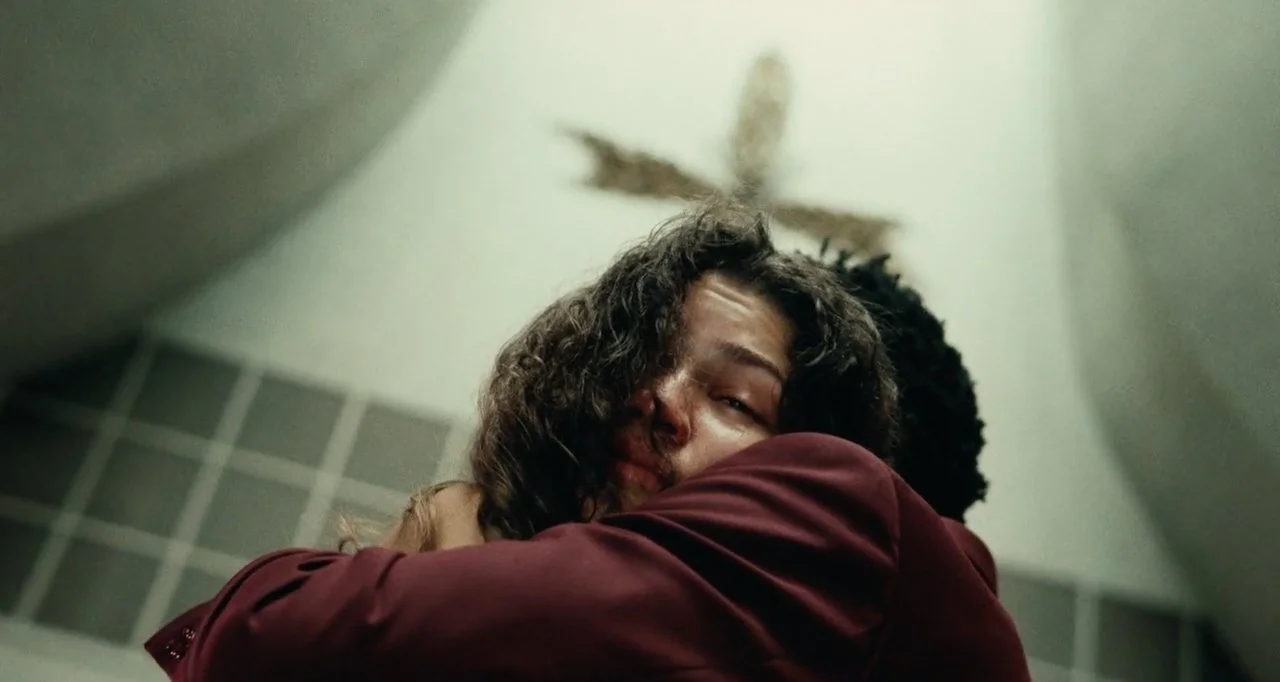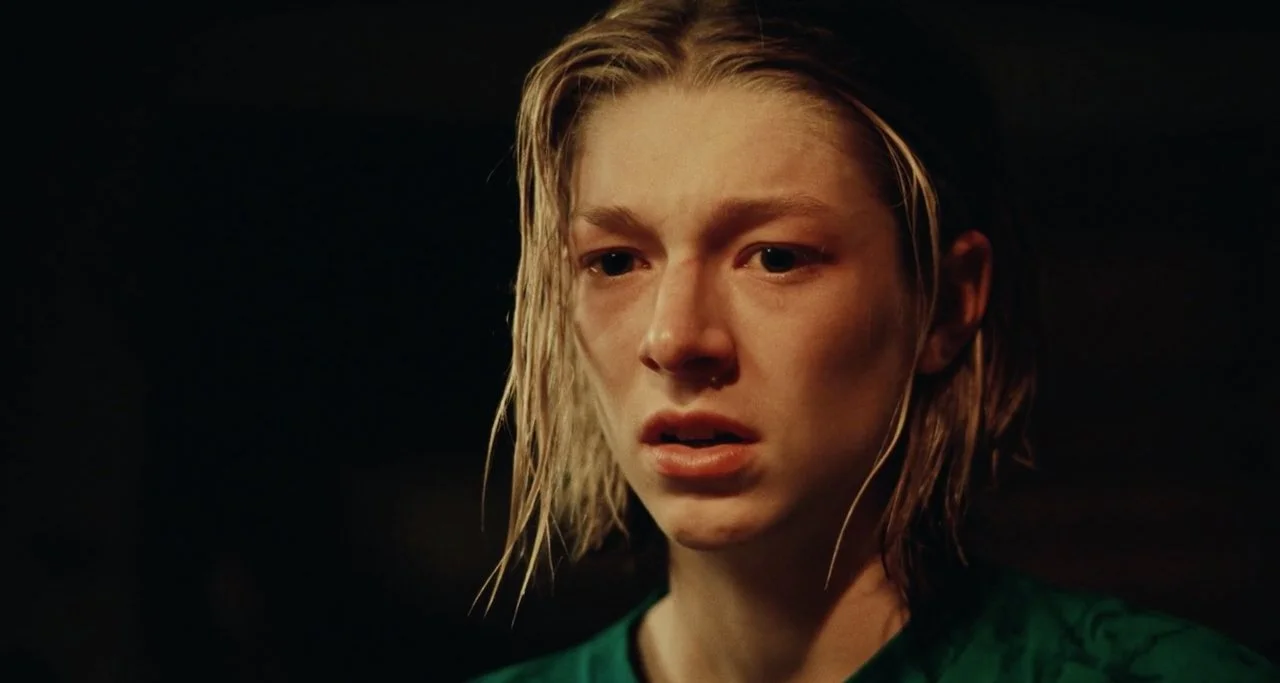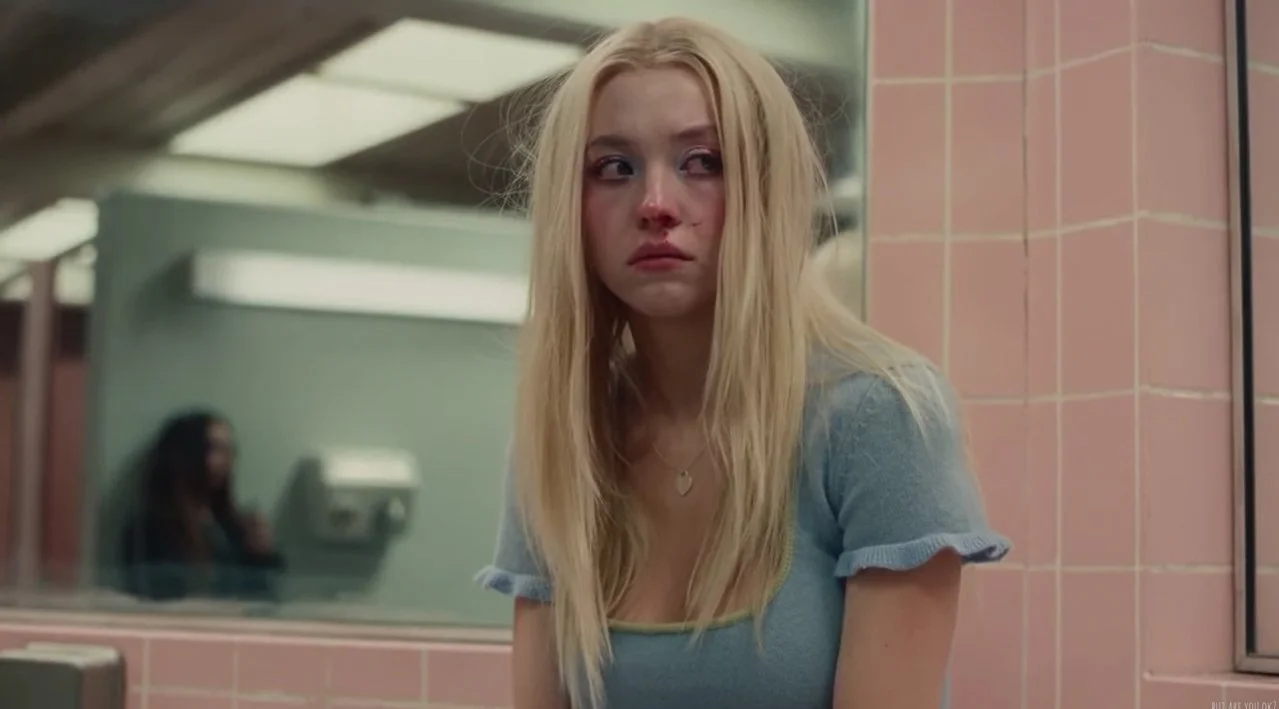The Emotional Weight of Euphoria
*SPOILERS AHEAD*
Despite the variety of opinions on whether season 2 of Euphoria was good or not - the fact remains that it has become the second most watched show on HBO after Game of Thrones. People tune in weekly during an age when a whole season is dumped onto a streaming platform for instant consumption - it’s a rare feat. After every episode a wide array of opinions were posted out there, many of them negative as well as positive. But when it came down to it, people were engaged. Viewers discussed it weekly and made their own predictions on these character’s lives, they would go as far as psychoanalyzing these characters and questioning why they wanted what they were chasing after. Many artists can only dream of that level of audience investment. It really got me thinking, why is this show driving viewership through the roof despite its valid criticisms and controversies? What keeps everyone glued to their HBO subscription? And why is it so fun to talk about?
After watching countless interviews with the cast and rewatching scenes, I’ve concluded it all comes down to emotional stakes. In an interview with HBO, Sam Levinson, the writer, director, and creator of Euphoria, said, “When you’re young it’s really hard to articulate the feelings that you have. Whether it’s anger or love or just being ok.” Because we are seeing this show through the eyes of teenagers everything in the show feels life and death. Sam Levinson and the entire team have created a show that leans into the fantastical and dramatic world of our teenage emotions. If you find yourself thinking about how unrealistic the show can be at times, it makes sense to think about how you can’t always trust the way you feel in a moment. That is intensified when you are young and experiencing things beyond your control for the first time. It’s a powerful thing. And Euphoria implements that power through filmmaking elements to help create that emotional pull that makes us love the show despite how much we “hate” it.
Cinematography
Other than watching Zendaya bloom out of Disney stardom, the cinematography was the reason I started watching Euphoria. I kept seeing screenshots or scenes on my feed of images unlike anything I’d seen before. Season 2 went a step further.
This time around, the Euphoria team contacted Kodak to get enough of their 35mm Ektachrome film stock made to shoot the entire season. Marcell Rév, the director of photography, said, “Season one was very in the moment, and had a present feel to it. [Season 2] feels like some sort of memory of high school. Emotionally—the [Ektachrome] film felt like the right choice.” The use of film imitates the way moments in our youth are slipping away as they are happening. In Rue’s case perhaps it gives the impression of her memory becoming spotty as she sees her life through the filter of grief for her past loss. Meanwhile drugs are twisting her perception of the present. It’s a photograph of her life.
On the more literal side, viewing Cal’s life through the 35mm film rather than digital gives another sense of being stuck in the regrets of his past. Especially when getting to view his life during high school and understanding the love he lost because of the pressure he felt to be a certain way. We can see that reflected in Nate, who is also fixated on the past, and might be doomed to repeat the same fate as his father. The use of film intensifies the presence of the past in each character and introduces a more intimate perspective of their present.
With this anchor in the past, it plants us firmly into some of the beautifully orchestrated shots this season. For example, the shot at the end of episode 4 with Cassie surrounded by hanging roses is a perfect depiction of not only a moment in the characters story but also a characterization of who she is. Even out of context from the show, as just a photograph, we could infer that there is a vanity - metaphorically & literally - present that Cassie is perhaps trapped behind, yet it’s her only comfort amidst her loneliness. This shot has been posted everywhere, because it hits so powerfully into our own sensitivities and vulnerabilities.
Additionally the New Years party scene in the first episode of season 2, is also a great example of cinematography creating an overarching feeling - perhaps for the entire season - with a simple but effective visual. The scene falls into darkness and comes back into blinding light with a sudden flash of a spotlight that reveals the characters in that moment in slow motion. It is as if this is the most important moment of their lives. And to these teenagers, it is. The lighting foreshadows the tension between Maddy, Cassie, and Nate. It sheds light onto the pain Rue and Jules are causing each other. (And I guess it highlights Kat & Ethan’s doomed relationship.) It also presents these characters as if part of a show or a play, tying the beginning to the end with Lexi’s play.
Speaking of Lexi’s play, though a ridiculous production for a high school theater project, I like the idea that the show isn’t actually that high production, but rather it is Lexi’s ideal image of the play. The audience watching it views it that way because they are fully engaged with the material. Maybe similar to us with Euphoria. Perhaps it’s a stretch but think about it. The show, Euphoria is told through the emotional perspective of these teenagers' minds, and Lexi’s play is even more so since the creator is a teenager writing for the teenagers in her life. The last two episodes about the play use the camera movements and seamless edits to merge the line between the reality in Euphoria and the reality in “Our Life”, Lexi’s play. A strategy that might have confused viewers if they were trying to separate the two perspectives. However, both perspectives focus on the emotional weight that the characters carry and it’s identical. So in the end it doesn’t matter because the way we feel while watching says it all.
Music
As I write this blog post I am listening to Euphoria’s season 1 soundtrack. (Sadly season 2’s soundtrack isn’t out yet.) It’s very clear to me that a lot of Euphoria’s popularity stems from the way it employs music to give the show its emotional gravitas. And I’m not talking about the needle drops that Euphoria is known for. However, this season they implemented some great ones, like “Call Me Irresponsible” by Bobby Darin. A single episode can have upwards of 37 tracks according to the music supervisor, Jen Malone. Instead I want to talk about Labrinth.
Labrinth is a producer and musician turned composer. He has an eclectic sound, a sound he marries well into Euphoria, a show with an eclectic style and tone: i.e. Lexi’s documentary behind-the-scenes dreamscape contrasted with Rue going to Laurie’s apartment with a couple of coins and watches to pay for a suitcase of drugs. Labrinth likes to experiment across sounds, anything from rap, to electric, to gospel, he implements sometimes in the most unexpected ways.
What particularly attracts me to the way he composes is that the sounds he creates can suddenly clash to create a visceral soundscape (for example, “Still Don’t Know My Name” in season 1 - wow). In a behind-the-scenes interview, he says that he lets Euphoria tell him what to do, and lets the creativity flow, often it surprises him how the first feeling that he creates becomes the final product. Labrinth describes his process as spiritual over technical, which considering Euphoria’s theme of gospel music and a strong omnipresence, it makes sense why Levinson brought Labrinth on, or perhaps Labrinth himself influenced that very theme of God.
Labrinth ties up the emotionality and sensitivity that Euphoria requires to succeed, and keep succeeding. And I believe it stems a lot from the guttural way he creates music. His voice is another tool that emotionally anchors the story of Euphoria. His voice is an omnipresent narrator, sometimes his vocals tie up the scene with a murmur of melancholy or a yelp of bombastic confidence. He is always crooning on the edges of the frame like an auditory vignette. We recognize him like we recognize Rue’s narration, and can rely on him to tell us how the scene feels for the character.
Which brings me to the church scene in episode 4, Labrinth appears before Rue and sings “I’m Tired”. I don’t know about you, but I did not question Labrinth's presence because I recognized his voice. He’s always been there in the outskirts, as if alongside Rue, and his appearance made sense.
Labrinth mentions the making of the song was a specific request from Levinson and Zendaya, whose vocals are featured in the song. They wanted a song of redemption for Rue, a moment of acknowledging that she wants to change, but that she wants to change for herself not for anyone else. That in mind, Labrinth is the perfect figure, merging beautifully into the scene with an acoustic sound recorded from his performance and using a similar cutting technique as Lexi’s play to cut between Rue and Labrinth and Rue and her father. Not a dry eye in sight.
Acting
I would be remiss to not mention the performances that tie everything together and keep us connected. Sydney Sweeney, Zendaya, Nika King, and Colman Domingo - went above and beyond this season. And I strongly believe that Hunter Schafer’s face was created for dramatic close ups. As a matter of fact the close ups scattered throughout the season are used to place us, the viewers, face to face with the emotions experienced by the characters through the amazing work that the actors do. Oftentimes the best story is told by just placing a camera in front of an actor and letting their face tell the story. That is what great acting can do.
When it comes to Euphoria, the acting grounds the story that is floating beyond reality. The human faces and emotions, that’s what viewers line up to see, so great acting is not only required, it is a necessity. For example, the evolution of Cassie throughout season 2 was so instrumental. Cassie begins the season lost in front of a gas station only to find herself face to face with Nate. The worst person to find while in a vulnerable state. She doesn’t even fight it though, she’s desperate for a way out of her loneliness, to run away from the bad feelings that tell her she needs to change. No, Cassie dives head first. As viewers, of course we want to see that, it’s a million times more entertaining than a girl acting like the epitome of good and sane. We see her become more dependent on Nate for validation and this idea of love she has in her head. She betrays her best friend, again and again. She tells herself a narrative that no one except her believes, but it’s all she has to cling to while hoping not to lose her mind in the guilt, as we see in the bathroom scene of episode 3. In the end, as quickly as she gets Nate, she loses him. All the while losing herself and the people close to her. Sweeney’s ability to swing from vulnerably pathetic to radically unhinged is incredibly entertaining and worth all the awards attention she will likely receive.
Another likely candidate for awards attention, unsurprisingly, is Zendaya, hot off her Emmy win for the first season. On the climactic turning point of the season, episode 5, Zendaya brings Rue to an emotional reckoning. Rue is confronted with her worst nightmare, those she holds dearest find out the truth about her addiction. The episode begins with the confrontation, Rue’s mom, played by Nika King, a stellar scene partner, has found out about the suitcase full of opioids and is trying to get her to a rehab under the guise of taking her to a hospital. Rue does not comply. She throws verbal abuse at her mom and her sister, Gia, who she then shoves onto her bed in anger. Zendaya morphs seamlessly from anger, to desperation, to frustration, to devastation, to embarrassment, to everything else in between. This first scene alone is powerful in bringing us into the psyche of someone who suffers with addiction. The push and pull of knowing what’s right and denying it to themselves. Perhaps not feeling themselves worthy of the care and concern their loved ones offer them, ashamed of the way they might be viewed, yet not able to stop, the addiction is so much more powerful than these human emotions. After all, the drug might be the only way to shut off this tidal wave of bad going on in their mind. Zendaya plays this all beautifully and takes us further on her journey through the episode to avoid the help she clearly needs. This episode was the highlight of the season, and it’s very much due to the way all the aspects of Euphoria were interwoven to create such an emotionally captivating episode.
In conclusion, it doesn’t matter how off the rails the storyline might get for the now confirmed third season. Euphoria has a grasp on the emotional weight that it carries, it knows how to manage it and visualize it for an audience to connect and feel empathy. Art in its many aspects brings us closer to an emotion regardless if labeled “good” or “bad”, as humans all we need is for the subject to spark something within us, whether unsettling, joyful, or a reflection of our very nature. Euphoria can spark it all, sometimes all within one shot, within one song, within one violet tinted lighting cue.
Dive Deeper…
Cinematographer Marcell Rév on cultivating the emotional realism of Euphoria | Deadline
How Euphoria turned the teen soundtrack into the perfect fever dream | The Ringer
Interview with Labrinth | Rolling Stone
The Visual World of Euphoria | The Take
